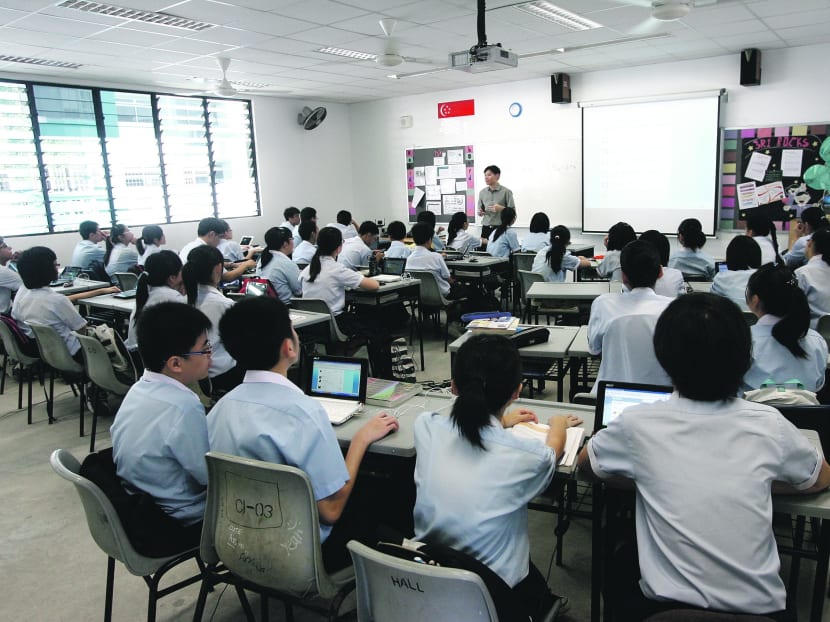PSLE’s focus on grades won’t ease pressure on children: Parents
SINGAPORE — The new Primary School Leaving Examination (PSLE) scoring system reduces competition but might not necessarily ease the pressure on children since the focus is still on grades, said parents whose children will be among the pioneer batch in 2021.
SINGAPORE — The new Primary School Leaving Examination (PSLE) scoring system reduces competition but might not necessarily ease the pressure on children since the focus is still on grades, said parents whose children will be among the pioneer batch in 2021.
And while they acknowledged that reducing the differentiation between students’ performance would open up secondary school options, parents said only time will tell if it leads to a mindset shift where choices take into account non-academic factors, such as a child’s interests or the school’s ethos or co-curricular activity (CCA).
The parents were responding to the Ministry of Education’s (MOE’s) announcement yesterday that the new PSLE Score system kicking in in 2021 will be based solely on a student’s own performance rather than the current T-score system, where students’ performance is ranked against peers of their cohort. The marks students get for each subject will fall into eight Achievement Levels (AL) to give a combined PSLE score of between four and 32, which will determine their choice of secondary school.
Ms Angie Ong, whose daughter is in Primary 1 at Red Swastika, said students will not have to stress about having to outscore their peers under the new system, which could allow them to focus on sports and other non-academic interests.
Nevertheless, the pressure to study hard will remain as it will still be about exam results, the 36-year-old business owner added.
Ms Deborah Giam, whose daughter is a student at Methodist Girls’ School, agreed it will be fairer to judge a student’s own performance but also felt the PSLE will “continue to be a source of stress”. “In the case of the T-score, a lot of it was out of people’s control ... so all you can do is always push your kid to do the best that they can. With this new system, it’s still the same because ... at end of the day, it’s still about how many points you score,” she said.
Asked if how they pick the secondary school for their children will change, parents had mixed views.
Some, like Ms Giam, were sceptical about whether parents would be driven by a school’s niche programmes, rather than the cut-off point. If CCAs were part of the equation for admission, parents could be more inclined to look beyond academic grades.
Ms Ong also said she would rank her school choices based on her child’s academic capabilities.
“I will rank the schools according to the highest possibility that she can get into the school. If her score is far away from the school’s expectation, I will not let her rank that as No 1. My second priority is which school is the nearest to us where (shorter) travelling time means more time to rest and do her revision at home,” she added.
Others, like Ms Betty Ho, said she would place her child’s interests first.
Her daughter, who is a budding ballerina, will be enrolling in River Valley Primary School next year, and Ms Ho said a school’s dance programme, rather than its academic record, would matter more to her.
“It depends on what is best for her, not what the best school is,” said Ms Ho. “Ultimately, you want your child to grow up to be a good person with good character, good morals and if you’re always focusing on the academics, you will miss out on other things.”







